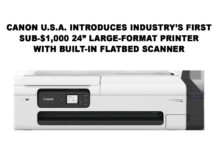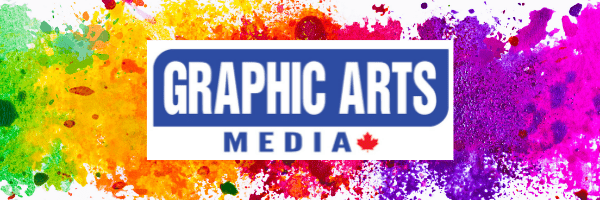
Taylor-Demers of Toronto is a full-service, SOC II-certified, data-driven communications provider, delivering transactional solutions and documents for the financial, insurance, not-for-profit, government and health care industries, as well as expertise in direct mail. The company offers its clients an extensive range of capabilities, including fully customizable digital and inkjet printing, booklet printing and finishing, and high-speed intelligent inserting. “We consider ourselves a boutique operation,” said David Matthews, Data Manager. “We’re nimble enough to give that one-on-one attention every customer demands and wants, but thanks to investments in the latest technologies and training, we can go toe-to-toe with the larger players in the industry. In addition to our transactional, financial, and direct mail business,” Matthews explained, “we have clients that require high volumes of booklets to be printed and finished in short turnaround times. We found that we were outsourcing as much as we were doing in-house, since we couldn’t keep up with the demand. That started us on the path to seeking a new print and finishing solution that could not only address our demands today, but give us room to grow.”

After significant due diligence, the team from Taylor-Demers chose to install a Xerox Trivor 2400 continuous feed inkjet press to replace its toner-based fleet. To finish the printed output, the press was equipped with an inline Hunkeler Roll-to-Stack System from Standard Finishing Systems. The Hunkeler line features the UW6 Unwinder feeding into the press on the front end, with a WM6 Web Merger, CS6-II Double-cut Rotary Cutter, SE6 Separator/Offset Module, and LS6 Non-Stop Stacker on the back end. The configuration can produce up to 2,000 straight and fully separated book blocks per hour, and is flexible enough to run a wide range of applications – from book blocks to postcards to personalized statements. Taylor-Demers also invested in a near-line Horizon StitchLiner 5500 Saddlestitcher with HOF-400 Digital Sheet Feeder to process the stacks coming off the Trivor press into booklets. With fully automated changeover in less than 5 minutes, the system can produce true saddle-stitched booklets with full bleed trimming at speeds up to 11,000 2-up booklets per hour!

Tenfold increase in throughput eliminated need to outsource. “This configuration has been an amazing success,” Matthews added. “Our throughput has increased by 10 times, and has enabled us to bring all of our outsourced work in-house – with room to spare. There’s a huge difference between 7,000 toner-based letter impressions per hour to the more than 100,000 we’re getting today. The finishing decision was made at the same time as the press decision, since we needed to make sure the back-end could keep up with the front-end. It’s a staggering difference in efficiency and cost. Since we’ve had this configuration, we have only had to send one job out, and that was because of scheduled maintenance on the system.” The acquisition of the StitchLiner has not only eliminated outsourcing, but has also allowed the company to bring in more outside work, offering fast turnarounds for processing flat-printed sheets into booklets and adding a new revenue stream.
In addition to being able to meet the booklet demands of its customers, Taylor-Demers is also more confident that it can meet the strict service level agreements associated with its financial customers, even as its business grows. The company uses the slit/merge capability on the Hunkeler Line to produce multiple-page transactional documents. In another application, they run 4.5” postcards 4-up, bypassing the web merger, with full-bleed cards being slit and placed into four separate stacks. These are just two examples, among the many applications, that have benefited from the new configuration.

More automation and less labour. Another productivity enhancement for Taylor-Demers is the availability of specialized carts for the Horizon StitchLiner. “We noticed the HOF-400 on the StitchLiner had a removable cart for feeding piles of printed sheets from the Trivor, and we asked to get extras. Now we just load the sheeted output from the Trivor and Hunkeler inline configuration onto a cart, roll it into the StitchLiner, and we’re ready to go,” Matthews added. “It only requires one person to reload the cart every time it empties, and wheel it in. This eliminates a lot of extra handling and contributes to our tenfold increase in throughput.” Matthews cited one job that was comprised of 11 million letter impressions for perfect-bound book blocks. “We turned that around in less than two weeks,” he pointed out. “There’s no way we could print that before, let alone get it to our in-house digital perfect binder. In addition to eliminating our outsourcing, we now have enough capacity to even take in outside bindery work.”
 The importance of service and support. Matthews and the Taylor-Demers team have been pleased with their relationship with Standard Finishing. “We visited their showroom in Massachusetts during the decision process and were very impressed,” Matthews said. “From that point on, the service and support has been fabulous. They’re a fantastic group, and we would definitely work with them again on any other project that comes up. We like to work with suppliers that are as dedicated to customer service as we are, and Standard Finishing is a great partner in that respect.”
The importance of service and support. Matthews and the Taylor-Demers team have been pleased with their relationship with Standard Finishing. “We visited their showroom in Massachusetts during the decision process and were very impressed,” Matthews said. “From that point on, the service and support has been fabulous. They’re a fantastic group, and we would definitely work with them again on any other project that comes up. We like to work with suppliers that are as dedicated to customer service as we are, and Standard Finishing is a great partner in that respect.”





